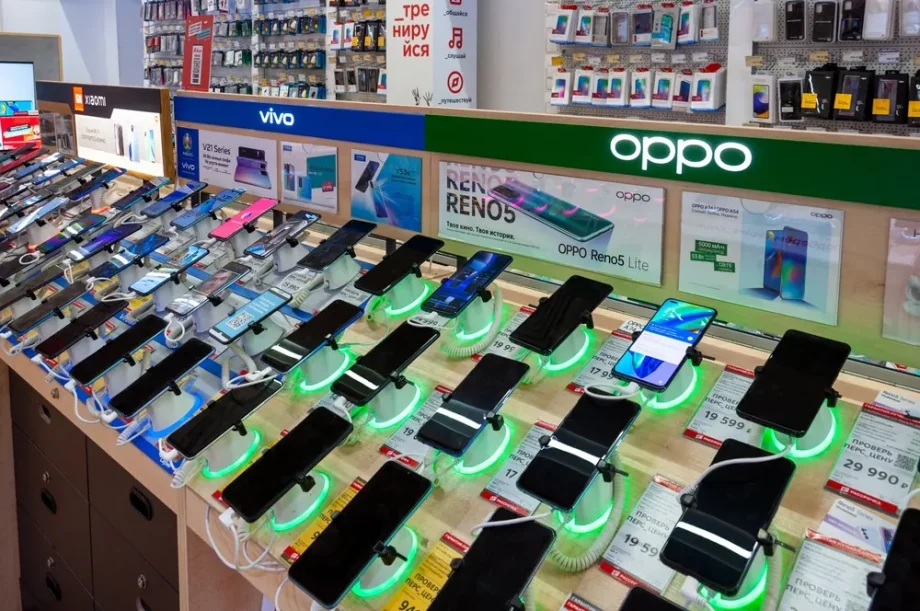The mobile industry continues to expand at an impressive pace, with smartphones and accessories remaining everyday essentials. For entrepreneurs, learning how to open a mobile phone shop presents a real opportunity to enter a sector where customer demand rarely slows.
But while the idea of setting up a shop sounds exciting, it takes more than stocking the latest handsets to succeed. Careful planning, smart investment, and the ability to adapt to shifting trends are all part of the journey. This guide explores the practical steps and considerations to help you start your shop with confidence.
Common Challenges When Opening a Mobile Phone Shop
1. Intense Competition
Large retail chains and online platforms already command a strong share of the market. Independent shops need a distinctive edge to draw customers away from more established names. This might mean specialising in accessories, offering bundled services, or targeting a local audience that values personal service.
2. Financial Pressures
Start-up expenses can mount quickly. Beyond securing a retail space, shop owners need to invest in inventory, display units, and essential shop fittings. Without a clear financial strategy, it’s easy to overspend early on and leave little room for ongoing costs such as utilities, wages, and marketing.
3. Regulatory Requirements
New businesses must also navigate registration, tax obligations, and consumer protection laws. While these tasks may not take long, overlooking them can lead to unnecessary setbacks.
4. Rapid Technological Change
Mobile phones and accessories evolve quickly. A handset that is in high demand today may lose its appeal within months. Shops that fail to refresh stock or adapt to emerging trends risk losing relevance in a highly dynamic market.
5. Building Customer Trust
For a new business, trust does not come automatically. Shoppers often feel more secure buying from established retailers. To compete, smaller shops must provide consistent service, transparent pricing, and a customer experience that encourages loyalty.
Conducting Market Research Before Launching
Before investing in a retail space or stocking inventory, it is essential to understand the market you are entering. Proper research not only highlights opportunities but also reduces the risk of costly mistakes.
Identifying Your Target Audience
Different customer groups have different needs. Some buyers prioritise the latest smartphones, while others look for affordable accessories or reliable repairs. By defining whether your shop will serve budget-conscious buyers, tech enthusiasts, or general households, you can tailor your product range to meet their expectations.
Studying Competitors
Analysing nearby mobile phone shops and e-commerce platforms gives valuable insight into what works and what gaps you could fill. For example, if most competitors focus heavily on premium smartphones, there may be room for a store that highlights mid-range options or essential accessories.
Finding a Profitable Niche
Successful shops rarely try to serve everyone. Instead, they identify a niche that balances demand with manageable competition. This could be specialising in protective cases, catering to the repair market, or focusing on pre-owned devices. Choosing a niche helps position your shop as a go-to destination rather than just another general retailer.
Building a Practical Business Plan

A well-prepared business plan is the backbone of any successful retail venture. It provides direction, helps secure financing, and serves as a reference point for growth. For anyone learning how to open a mobile phone shop, this step cannot be skipped.
Why a Business Plan Matters
A business plan allows you to map out objectives, anticipate challenges, and set measurable goals. Without one, it is easy to lose track of finances, overspend on stock, or misjudge customer demand. Investors and lenders also expect a plan before committing support, making it vital for raising capital.
Key Elements to Include
- Executive Summary: Overview of your shop and target market.
- Market Analysis: Customer demographics and competitor insights.
- Business Model: How the shop will generate revenue.
- Marketing Strategy: Plans for building visibility.
- Financial Projections: Start-up costs, ongoing expenses, and profit expectations.
Setting Realistic Goals
Start with achievable short-term goals, such as building a customer base within the first six months or reaching a defined monthly sales target. Once those are met, expand to longer-term objectives such as adding new services or opening a second branch.
How Much Does It Cost to Open a Mobile Phone Shop?
The exact investment varies depending on location, size, and business model, but most shops share similar expense categories.
Initial Start-Up Costs
- Retail Space: Deposits and shop fit-outs, especially in high-footfall areas.
- Inventory: Phones, accessories, and spare parts from wholesale suppliers.
- Fixtures and Equipment: Display cabinets, security systems, and POS technology.
- Licensing and Registration: Permits, insurance, and authority fees.
- Marketing: Signage, promotions, and digital ads.
Ongoing Expenses
Recurring costs include wages, utilities, software subscriptions, and stock replenishment. Budgeting for slower trading periods and unexpected repairs is also important.
Estimating the Investment
Small shops may launch with modest budgets, but a fully stocked and well-located mobile phone shop often requires a five-figure investment. Creating a financial cushion for the first few months of trading is highly recommended, as profitability may take time.
Finding Reliable Mobile Suppliers and Distributors
Suppliers form the backbone of any mobile phone shop. The quality, variety, and pricing of your stock depend heavily on the partnerships you establish.
Why Supplier Choice Matters
Reliable suppliers ensure a steady flow of products, from the latest smartphones to everyday accessories. Poor supplier relationships, on the other hand, can lead to shortages, inconsistent quality, or inflated costs.
Sourcing Wholesale Products
Most shop owners look to wholesale distributors who provide bulk pricing across a wide range of brands. Choosing a wholesaler with a strong reputation and a diverse catalogue allows you to stock both popular devices and supporting accessories.
Building Strong Partnerships
Suppliers should be treated as long-term partners. Clear communication, timely payments, and understanding lead times build trust and stability. Many wholesalers also offer bulk discounts or marketing support, which can strengthen your competitive edge.
Crafting a Strong Digital Marketing Strategy
Even the best-stocked shop will struggle without visibility. A strong digital marketing strategy ensures that customers know your shop exists and understand why they should choose it.
Create a Professional Website and Online Store
A professional website is essential for credibility. It should showcase available products, highlight services such as repairs, and provide contact information. Adding an e-commerce function extends your reach beyond the local area.
Make Use of Social Media
Platforms like Facebook, Instagram, and TikTok are powerful for awareness. Regular posts featuring new arrivals, promotions, and customer stories create engagement. Paid campaigns can target local audiences effectively.
Search Engine Optimisation (SEO)
Optimising your website for local SEO increases the chance of appearing in searches for “mobile phone shop near me.” Registering on Google Business Profile and including location-based keywords are straightforward steps that improve visibility.
Paid Advertising
Online ads, whether on Google or social platforms, capture intent-driven searches and help highlight unique strengths such as affordability, speed, or exclusive deals.
Managing Your Finances Effectively
Once your shop is open, daily financial management becomes just as important as the initial investment.
Tracking Income and Expenses
Using accounting software helps monitor sales, expenses, and inventory in real time. This simplifies tax reporting and highlights areas where performance can be improved.
Monitoring Cash Flow
Keeping enough funds available for rent, wages, and stock replenishment prevents disruptions. A buffer for slower months or unexpected costs provides extra security.
Setting Profit Margins
Accessories often bring higher margins than handsets, making them essential to sales strategy. Balancing premium products with affordable alternatives attracts a wide customer base while protecting profitability.
Planning for Growth
Allocating part of profits towards expansion, whether by widening stock variety or opening a second branch, ensures the shop continues to develop.
Keeping Up With Mobile Technology Trends

The mobile industry changes rapidly, and a successful shop must adapt to remain relevant.
Staying Ahead of Product Launches
Anticipating new device releases ensures you can prepare stock in advance, meeting customer demand as soon as products hit the market.
Updating Accessories to Match Demand
Accessories should evolve alongside devices. Wireless charging pads, durable screen protectors, and eco-friendly cases are examples of items gaining popularity.
Watching Consumer Shifts
Trends such as refurbished phones and foldable devices reflect changing customer interests. Adjusting your stock to align with these shifts helps maintain relevance.
Delivering Excellent Customer Service
In a competitive industry, excellent customer service is often the difference between one-time buyers and repeat customers.
Creating a Positive Experience
Clear communication, helpful staff, and straightforward policies establish trust. A friendly and knowledgeable team ensures customers leave with confidence in their purchase.
Building Loyalty
Reward schemes, after-sales support, and small gestures such as offering free screen cleaning can encourage repeat visits. These touches demonstrate value beyond the product itself.
Handling Issues Effectively
Problems are inevitable, but how they are resolved matters. Prompt handling of complaints or returns shows professionalism and builds long-term trust.
Final Steps on How to Open a Mobile Phone Shop
Learning how to open a mobile phone shop is not just about renting a storefront and filling it with stock. Success depends on research, planning, and a clear strategy that balances finances, suppliers, marketing, and customer service. Each of these steps contributes to building a business that can adapt to trends and remain profitable over time.
Strong supplier relationships and reliable stock are equally important. The mobile industry moves quickly, and customers expect both variety and availability. Choosing the right wholesale partner makes it easier to stay ahead of demand and maintain profitability.
For entrepreneurs ready to take the next step, sourcing quality products at competitive prices is key. Skyline Mobile offers wholesale access to a wide range of phones, accessories, and spare parts, helping new shops secure their stock with confidence. With the right foundation and dependable supply, your mobile phone shop can grow into a profitable and trusted business.Contact Skyline Mobile today to explore wholesale options and get your shop stocked with products your customers will want.

